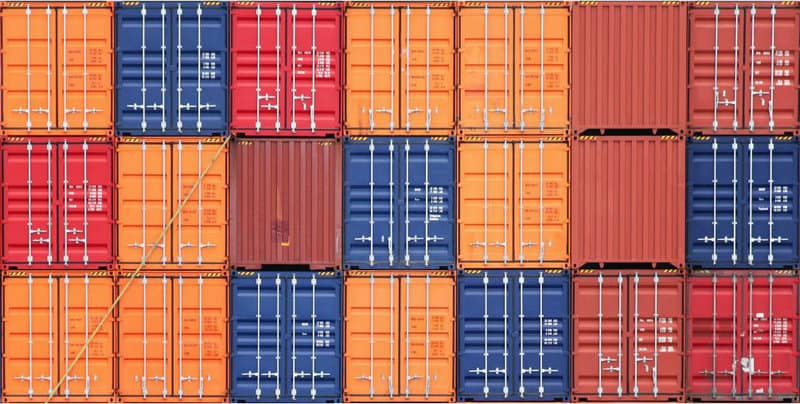
Shipment from China to Turkey has become an integral part of global trade, connecting the manufacturing power of the East with the growing markets of the West. As you look to transport goods across these nations, understanding the nuances of this shipping route is crucial. The strategic positions of China and Turkey make them key players in international logistics, with China being the world’s largest exporter and Turkey situated at the crossroads of Europe and Asia, serving as a gateway to both regions.
Navigating the complexities of shipping from China to Turkey involves a variety of factors, from choosing the right methods for shipping to understanding customs regulations. Whether you’re considering sea freight for its cost-effectiveness, air freight for its speed, or a combination of both, each option has its own set of pros and cons that must be carefully weighed. Additionally, staying updated on customs protocols and having a clear grasp of import/export documentation is essential to ensure a smooth transaction.
Establishing a reliable and efficient logistics strategy requires collaborating with experienced freight forwarders and shipping companies familiar with this specific route. They can provide you with the expertise needed to handle the logistical challenges and facilitate a seamless delivery from China to Turkey. With the right approach, you can optimize your shipping processes, reduce transit times, and potentially minimize costs.
Overview of China-Turkey Shipping Routes
Your shipping options to Turkey from China include various routes by sea, air, and land. Each shipping method offers distinct advantages depending on your cargo requirements and timeline.
Sea Freight Routes
You can ship your goods between China and Turkey through several major Chinese ports such as Shanghai, Shenzhen, and Ningbo. Your cargo will likely pass through the Suez Canal, landing at one of the primary ports in Turkey, including Ambarli (Istanbul), Izmir, or Mersin.
| Major Seaport in China | Major Seaport in Turkey |
| Port of Shanghai | Port of Haydarpaşa (Istanbul) |
| Port of Shenzhen | Port of Ambarlı (Istanbul) |
| Port of Ningbo-Zhoushan | Port of Mersin |
| Port of Guangzhou | Port of İzmir |
| Port of Qingdao | Port of İzmit (Kocaeli) |
| Port of Tianjin | Port of Gemlik |
| Port of Dalian | Port of Samsun |
| Port of Xiamen | Port of Iskenderun |
Air Freight Routes
For faster delivery, air freight is your go-to option. Major Chinese airports such as Beijing Capital International Airport (PEK) and Shanghai Pudong International Airport (PVG) offer regular flights to Turkey’s main airports like Istanbul Airport (IST) and Ankara Esenboga Airport (ESB).
| Major Airport in China | Major Airport in Turkey |
| Beijing Capital International Airport (PEK) | Istanbul Airport (IST) |
| Shanghai Pudong International Airport (PVG) | Sabiha Gökçen Int’l Airport (SAW), Istanbul |
| Guangzhou Baiyun International Airport (CAN) | Antalya Airport (AYT) |
| Chengdu Shuangliu International Airport (CTU) | Esenboğa Int’l Airport (ESB), Ankara |
| Shenzhen Bao’an International Airport (SZX) | Adnan Menderes Airport (ADB), Izmir |
Rail and Road Options
Your overland options include the transcontinental railway and international roadways, traversing a route that links China with Europe through Central Asia:
- China-Europe Railway Express: Connects Chinese cities such as Xi’an and Chengdu with Istanbul.
- International Road Transport: Although not as common, there are routes available that drive through Central Asia.
Each method provides different benefits in terms of cost, transit time, and capacity. Your choice will depend on your specific shipping needs and the urgency of the delivery.
Comparing Shipping Modes
- Air Freight Shipping:
- Pros: Fastest mode, best for valuable or perishable goods.
- Cons: Most expensive, restricted by weight and size.
- Sea Freight Shipping:
- Pros: Economical for large volumes, flexible with cargo type.
- Cons: Slower transit time, subject to port delays.
- Rail Freight Shipping:
- Pros: Balance between cost and speed, good for heavy goods.
- Cons: Limited network, subject to rail schedules.
- Road Freight Shipping:
- Pros: Door-to-door delivery, flexible routes.
- Cons: Slower than air, affected by geopolitical events.
By understanding these factors and comparing the different shipping modes, you can better estimate the costs and choose an option that aligns with your budget and timing requirements.
Customs Regulations

When it comes to shipping from China to Turkey, it’s crucial to understand the customs regulations that govern export and import procedures. Adhering to these requirements ensures a smooth transition of goods across borders.
China’s Export Procedures
Documentation: Before you ship from China, you must prepare the necessary export documentation. This typically includes:
- A commercial invoice that outlines the value and description of your goods
- A packing list detailing each item within the shipment
- The export customs declaration, a mandatory document for all goods leaving China
Customs Clearance: Your shipment must go through customs clearance in China. You’ll need to:
- Submit all required documents
- Ensure that your goods are not on the list of prohibited exports
- Pay any applicable export taxes and duties
- Obtain the official clearance before your goods are loaded for transport
Turkey’s Import Requirements
Regulatory Compliance: To import goods into Turkey, you must comply with the country’s regulations:
- Tariffs and taxes are determined by the Harmonized Tariff Schedule of Turkey
- Certificates of origin may be required for certain products
Customs Clearance in Turkey: When your goods arrive in Turkey, your shipment will undergo a customs clearance process, including:
- Inspection of your shipment to verify contents and compliance with Turkish standards
- Payment of any import duties and taxes as determined by Turkish customs authorities
- Obtaining the necessary release from Turkish customs for delivery within the country
Shipping Costs
Shipping costs from China to Turkey depend on various factors. It’s important that you weigh these factors and choose the most suitable shipping method for your needs.
Factors Affecting Costs
- Distance: The distance between the Chinese origin and the Turkish destination plays a pivotal role in calculating shipping costs. Typically, longer distances equate to higher costs.
- Cargo Type: The nature of the goods you’re shipping influences costs. Hazardous materials or fragile items usually incur additional charges.
- Volume and Weight: Charges are based on actual weight or volumetric weight, depending on which is greater.
- Carrier and Service Level: Different carriers and service options (standard, express, or economy) will affect your costs.
- Time of Year: Peak seasons can lead to increased rates due to higher demand.
- Customs Duties and Taxes: Import duties, taxes, and clearing fees in Turkey are levied and can significantly affect the final cost.
Transit Times
Understanding the differences in shipping time from China to Turkey between sea, air, and land transportation is crucial, as these will significantly impact your delivery schedule.
Sea and Air Transit Timeframe
Sea freight from China to Turkey typically offers a longer but more cost-effective shipping option, while air freight is faster but more expensive.
| Transit Time | |
| Air Cargo | 8-10 days |
| Sea freight (FCL Shipping) | 20-45 days |
| Sea freight (LCL Shipping) | 25-50 days+ |
| Express Shipping | 3 days |
- FCL, or Full Container Load, refers to a shipment that occupies the entire space of one container. In an FCL cargo, all the goods in the container are owned by one shipper. The shipper has the option to load the container themselves or instruct the shipping company to do so. Once the container is loaded, it is sent to the port and loaded onto a cargo ship. The benefits of FCL cargo include reduced risk of damage or loss and quicker transit time, as the container does not need to be opened until it reaches its destination.
- LCL, or Less than Container Load, describes loads that do not fill an entire container. In an LCL shipment, different shippers share a container. This option is usually cheaper when the cargo volume is insufficient to fill a whole container, as the cost of shipping a full container is shared. However, the price per cubic meter (CBM) for an LCL shipment is usually higher than for an FCL shipment. LCL shipments also take longer in transit due to the deconsolidation process at the Container Freight Station (CFS) warehouses
Rail and Road Durations
Combined rail and road shipping provides an alternative to exclusively using air or sea.
| China-Europe Block Train to Turkey | Intercontinental Road Transport | |
| Transit Time | 12-16 days | 14-20 days |
Container Shipping

When you’re shipping to Turkey from China, selecting the appropriate container is crucial as it ensures the safety and cost-efficiency of your cargo transport.
Container Types and Sizes
You have several options regarding the types and sizes of containers for shipping your goods. Standard containers come in sizes of 20 feet (20′ x 8′ x 8.5′) and 40 feet (40′ x 8′ x 8.5′), with a general-purpose or dry van being the most common for various cargo. If your goods require temperature control, Refrigerated (Reefer) containers are available. These also typically come in 20′ and 40′ lengths. Open Top or Flat Rack containers may be more suitable for oversized or heavy items.
| Container Type | Size (Length x Width x Height) | Description |
|---|---|---|
| Standard | 20′ x 8′ x 8.5′ | Used for dry cargo, universally available. |
| Standard | 40′ x 8′ x 8.5′ | Suitable for larger dry cargo volumes. |
| Reefer | 20′ x 8′ x 8.5′ | Refrigerated for temperature-sensitive goods. |
| Reefer | 40′ x 8′ x 8.5′ | Larger version for cold cargo. |
| Open Top | Varies | For cargo that doesn’t fit through normal doors. |
| Flat Rack | 20′ and 40′ | Collapsible sides for heavy and oversized loads. |
Container Loading Processes
Your container loading process must adhere to international shipping standards to ensure that your cargo arrives safely. Start by preparing an itemized list of what you plan to ship. This inventory is a requirement for customs clearance and will facilitate the packing process. For loading, items should be placed onto pallets or in crates, which are then loaded into the container. Ensure each item is securely wrapped and cushioned to prevent damage. Heavy items go on the bottom, with lighter items on top to prevent crushing. It’s imperative for the weight to be evenly distributed to preserve container balance during transport. After loading, containers are sealed and labeled correctly with the necessary shipping and identification marks.
Cargo Insurance
When shipping from China to Turkey, securing cargo insurance is crucial to protect your goods from potential risks during transit.
Insurance Options
Several types of insurance policies are available for shipping cargo, and the coverage you choose should match the value and nature of your goods. Common policies include:
- All-Risk Coverage: This is the most comprehensive option, covering damages from all causes except those explicitly excluded in the policy.
- Named Perils Coverage: This policy protects against a list of specific risks stated within the policy document.
- Total Loss Coverage: Only covers the scenario where the entire shipment is lost or damaged beyond repair.
Insurance can be purchased through third-party insurers or directly from shipping companies as an added service.
Claim Procedures
If your shipment encounters an incident, a structured claim procedure must be followed to recover your losses:
- Immediate action: Notify the insurer as soon as any damage is discovered.
- Documentation: Submit the necessary documents to the insurer, including:
- Bill of Lading or Air Waybill
- Invoice and packing list
- Detailed survey report or damage notification
- Photos of the damage
- Assessment: An adjuster will assess the claim based on the provided documentation.
- Compensation: If approved, the compensation amount based on the terms of your insurance policy will be disbursed.
Documentation Required
When shipping goods from China to Turkey, having the correct documentation is essential for a smooth customs clearance process, avoiding delays and potential penalties.
Export Documentation
- Commercial Invoice: This document provides information about the seller and buyer, a description of the goods, the value for customs, and the terms of sale. It’s crucial for determining import duties.
- Packing List: Detailed list of every item in the shipment. It should match the contents of the shipment exactly.
- Certificate of Origin: A document stating the origin of the goods, usually issued by a trade agency or chamber of commerce.
- Bill of Lading (B/L): A contract between the owner of the goods and the carrier. For sea freight, it’s termed as Ocean Bill of Lading, while for air freight, it’s an Airway Bill.
Import Documentation
- Import Declaration: A document that the importer must provide, detailing the nature of the goods, their value, and quantity.
- Proof of Payment: Documentation showing that payment was made, such as bank receipts or electronic fund transfer records.
- Transportation Documents: Similar to the Bill of Lading, these documents cover the transport of goods to Turkey.
- Inspection Certificate: Required for certain goods that need to meet Turkish health and safety standards.
Incoterms for International Trade
International Commercial Terms, commonly known as Incoterms, are essential in global trade, dictating the roles, responsibilities, and risks for buyers and sellers.
Common Incoterms Explained
When importing from China to Turkey, you’ll encounter specific Incoterms. Understanding their meaning is vital for a smooth transaction.
- EXW (Ex Works)
- Seller’s responsibility: minimal, only prepares goods for pickup.
- Buyer’s responsibility: most, including loading, transport, and customs.
- FOB (Free On Board)
- Seller’s responsibility: deliver goods onboard the ship at the origin port.
- Buyer’s responsibility: freight, insurance, and unloading from the destination port.
- CIF (Cost, Insurance, and Freight)
- Seller’s responsibility: cover cost, insurance, and freight to the destination port.
- Buyer’s responsibility: from the destination port onward.
- DDP (Delivered Duty Paid)
- Seller’s responsibility: maximum, delivery including paid duties at destination.
- Buyer’s responsibility: unloading the goods.
Selecting Appropriate Incoterms
Your choice of Incoterms will influence cost, risk, and responsibility allocation.
- Assess your risk appetite: Less risk tolerance might warrant DDP over EXW.
- Consider your control level: FOB offers you control over freight and logistics.
- Understand the costs involved: CIF may seem inclusive, but be wary of hidden charges.
- Local regulations: Ensure compliance with Turkish customs regulations, which might affect your chosen Incoterm.
Risk Management
Proper risk management ensures the safe and timely arrival of your goods from China to Turkey.
Mitigating Shipping Risks
You must be proactive in reducing the potential risks associated with shipping. Contractual agreements with your suppliers should clearly outline quality control measures and packaging requirements. Conduct thorough inspections at the factory and consider purchasing insurance for your cargo. Utilize trusted carriers with good track records and real-time tracking systems to monitor your shipment’s progress.
Handling Delays and Losses
In case of delays, have a contingency plan that includes alternative transportation options. Ensure that you have proper documentation to facilitate swift resolution with carriers and insurance providers in the event of losses. Clear communication with your logistics partners is crucial for managing these situations effectively.
Why Choose Us? Luckystar Logistic
Founded in 2022, Luckystar is a distinguished freight forwarder in China. As a licensed Non-Vessel Operating Common Carrier (NVOCC) with the Federal Maritime Commission (FMC), Luckystar specializes in providing economical global shipping solutions with excellent service. Led by a veteran logistics team with over 20 years of industry expertise, Luckystar is dedicated to supplying dependable, flexible, and responsive international door-to-door freight transport and efficient shipping services.
Here’s why partnering with Luckystar is advantageous:
- Reliable On-Time Delivery: We minimize delivery delays, ensuring timely shipment arrival, which is vital for businesses to swiftly supply goods to customers.
- Global Shipping Reach: We ship to virtually any location worldwide, presenting tremendous global growth opportunities for businesses wanting to expand their reach abroad.
- Easy Shipment Tracking: Our stringent processes enable live tracking, letting you easily monitor shipment progress at every transportation stage for peace of mind.
- Personalized End-to-End Service: A dedicated Luckystar team member personally supervises your door-to-door shipment from start to finish while proactively updating you throughout for transparency.
Seeking an accomplished freight forwarder? Contact Luckystar – we eagerly assist companies in expertly shipping cargo internationally at extremely affordable rates, offering you the best shipping experience. Don’t wait; reach out now to leverage our unparalleled cheap international shipping!
